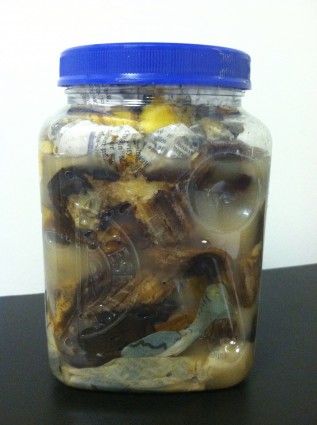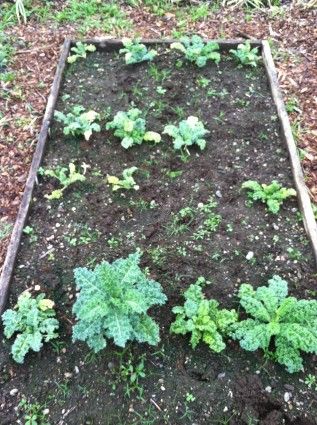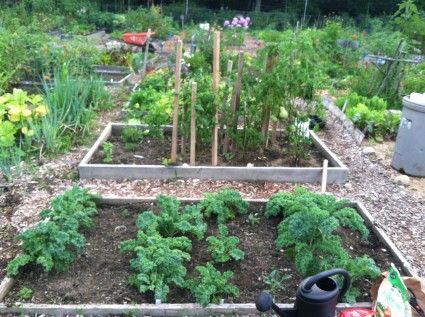Use Compost Tea to Supercharge Organic Garden Growth
Compost Tea as a Fertilizer
We experimented with our own version of compost tea this summer. It happened organically (haha 😉 ) when a tub of our compost (mostly banana & orange peels) started to form liquid nutrients at the bottom. Upon researching this topic, it turns out that compost tea is a well known method for growing and protecting an organic garden. In fact, compost tea making companies and centers have started to sprout up in the US on the west coast.
Side Note: Notice that we have several pieces of newspaper built into this compost tub. The reason is that the newspaper provides carbon and prevents our compost from growing mold. Eventually the newspaper decomposes and it too becomes part of the soil.
After a couple days of letting the organic liquid accumulate inside the tub, we poured the compost tea into the soil surrounding one of our kale plants. Our rationale was that providing liquid nutrients directly to a plant’s root system will help it grow. Thus we’d create a natural way of improving taste, quality, and yields.
As humans wash down supplements with water to increase absorption, we did the same with the compost tea and kale plant, giving the area ample water to let the compost tea seep into the roots. Three weeks later, we could see a noticeable difference in growth.
We added compost tea to the soil surrounding the second plant in from the left:
Little did we know that the effectiveness of compost tea is a widely debated topic in the organic gardening community. Some believe this to be an effective practice for growth and insect repelling while others believe its effectiveness is overstated.
Research is well underway in determining answers to these questions and our readers might ask where we stand on the issue. We’re firm believers in the belief that the quality of the soil is strongly correlated with the quality of the food grown. We can only speak to the above experiment and as you can see the kale plant we fertilized with compost tea absolutely flourished (as did the entire row compared to the row behind it.)
Two months later, the plant that we applied compost tea is still the biggest yielder:
We’re far from experts on this topic but felt that this experiment was worth sharing with our readers. Before embarking on the compost tea journey, be sure to research the safest and most prudent way to do so but also beware of outlets trying to sell aquatic pumps and all sorts of unnecessary gadgets.
Have any of you used compost tea in your garden? What have your experiences been like?


